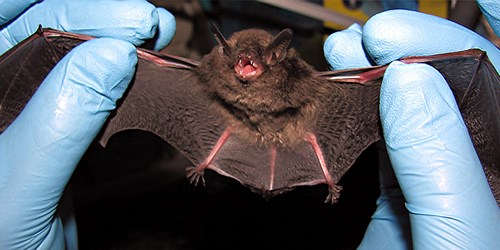Associated plots for pollinators

Associated received a $45,000 grant in 2017 from the Missouri Conservation Heritage Foundation for monarch butterfly habitat. Matching the grant with funds and in-kind labor, Associated has developed habitat on 32 acres at Thomas Hill Energy Center that it continues to cultivate and improve.
Monarch butterfly populations have declined 90 percent in the last 20 years, putting them at risk for listing as an endangered species. That could have an adverse impact on Associated and its members by creating restrictions that make it more difficult and costly to site and maintain transmission facilities and rights of way.
Instead, cooperatives have allied to protect pollinators, which are important to agriculture, natural landscapes and quality of life.
Staff continue to serve on the Missourians for Monarchs steering committee also.
Co-ops have gone to bat for bats too

Member cooperatives have longed partnered to protect habitat and species while ensuring reliable electricity for members. For example, Missouri cooperatives received the Conservation Federation of Missouri's esteemed Conservation Organization of the Year award in 2017 for their past work with the U.S. Fish and Wildlife Service on an agreement to protect endangered species, like the Indiana bat.